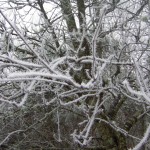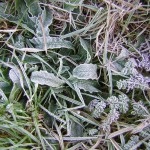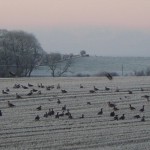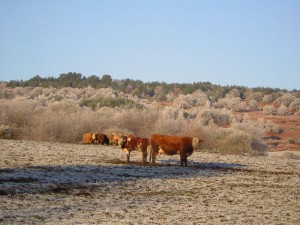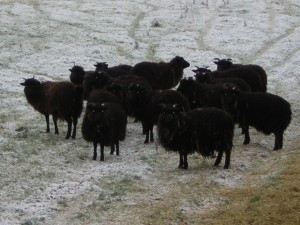Òrain Nollaige sa Charmina Gadelica
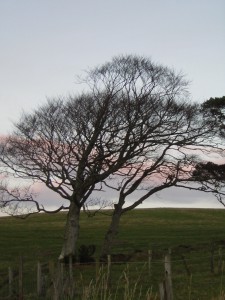 Rugadh is thogadh Alasdair Mac ‘Ille Mhìcheil (1832 – 1912) ann an Lios Mór. Fad cha mhòr leth-cheud bliadhna chruinnich e òrain, ùrnaighean, sean-fhaclan, cleachdaidhean is beul-aithris air feadh na Gàidhealtachd, “bho Arainn gu Gallaibh agus bho Pheairt gu Hiort”, agus dh’fhoillsich e iad anns a’ Charmina Gadelica ann an 1900. ‘S e seo an cruinneachadh as fharsainge a th’ againn de dh’ùrnaighean is bàrdachd às an dualchas beòil-aithris Gàidhlig, air an aiseag bho ghinealach gu ginealach gun a bhith air an sgrìobhadh sìos, agus gun Alasdair bhiodh a’ mhòr-chuid dhiubh air an call.
Rugadh is thogadh Alasdair Mac ‘Ille Mhìcheil (1832 – 1912) ann an Lios Mór. Fad cha mhòr leth-cheud bliadhna chruinnich e òrain, ùrnaighean, sean-fhaclan, cleachdaidhean is beul-aithris air feadh na Gàidhealtachd, “bho Arainn gu Gallaibh agus bho Pheairt gu Hiort”, agus dh’fhoillsich e iad anns a’ Charmina Gadelica ann an 1900. ‘S e seo an cruinneachadh as fharsainge a th’ againn de dh’ùrnaighean is bàrdachd às an dualchas beòil-aithris Gàidhlig, air an aiseag bho ghinealach gu ginealach gun a bhith air an sgrìobhadh sìos, agus gun Alasdair bhiodh a’ mhòr-chuid dhiubh air an call.
Mar a chunnaic sinn leis a’ mhìosachan Ghàidhlig, bhuin cuid mhòr de na cleachdaidhean agus na h-oibeagan traidiseanta do àm ro bhuaidh Crìosdaidheachd, ach rè nan linntean chaidh am filleadh a-steach còmhla rithe. Bha, agus ‘s dòcha gu bheil fhathast, na crìochan eadar creidheamh agus saobh-chràbhadh gu math lionn. Leis gun robh dòigh-beatha nan Gàidheal cho cruaidh, nan sgìrean is eileanan iomallach, bu bheag an t-iongnadh nan robh iad airson an dà chuid “crios agus galairsean” a chumail. Bha saobh-cràbhadh gu math laidir fiù ‘s aig na h-iasgairean diadhaidh ann am Machair Rois gus an fhicheadamh linn.
Chan eil dlighe-sgrìobhaidh aig an leabhar fhèin tuilleadh agus tha e ri leughadh air loidhne:
http://archive.org/details/carminagadelica01carmgoog
no
http://www.sacred-texts.com/neu/celt/cg1/index.htm
Seo cuid den chruinneachadh a tha ceangailte ri àm na Nollaige.
*************************************************************************************************
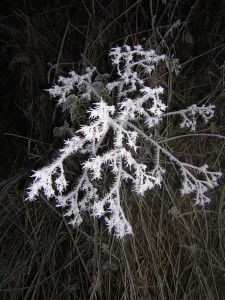 Christmas songs from the Carmina Gadelica
Christmas songs from the Carmina Gadelica
Alexander Carmichael (1832 – 1912) was born and raised on Lismore. For almost 50 years he collected songs, prayers, proverbs, customs and oral traditions all over the Highlands, “from Aran to Caithness and Perth to St Kilda”, and published them in the Carmina Gadelica in 1900. This is most comprehensive collection that we have of prayers and poetry from the Gaelic oral heritage, passed on from generation to generation without being written down, and without Alexander, the majority of them would have been lost.
As we saw with the Gaelic calendar, many of the traditional customs and incantations belonged to a time before the influence of Christianity, but in the course of the centuries they were integrated into it. The borders between belief and superstition were, and perhaps still are, very fluid. It wouldn’t be surprising if the Gaels, in their remote regions and islands and with the tough lives they had, preferred to hang onto both “belt and braces”. Superstition was going strong even among the god-fearing fisherfolk of the Seaboard into the 20th century.
Carmina Gadelica is now out of copyright and can be read online, here
http://archive.org/details/carminagadelica01carmgoog
or here
http://www.sacred-texts.com/neu/celt/cg1/index.htm
Here are some Christmas-related items from the collection:
HEIRE BANNAG [58] |
HEY THE GIFT |
THESE carols were sung by a band of men who went about from house to house in the townland. The band selected a leader for their singing and for their actions throughout the night. This leader was called ‘fear-duan,’ song-man, and the others were called ‘fir-fuinn,’ chorus-men. When they had sung their carols at a house, two or three bannocks were handed out to them through a window. The song-man got half of every bannock so received, and the other half went to the chorus-men.
| HEIRE Bannag, hoire Bannag, Heire Bannag, air a bheo. Chaidh Muire mhin gheal air a glun, Taobh an t-sorcain, taobh an t-searcain, ’G innse duinn gun do rugadh Criosd, Chi mi tulach, chi mi traigh, Chi mi ainghlean air an luinn, |
HEY the Gift, ho the Gift, Hey the Gift on the living. The fair Mary went upon her knee, The side of the sack (?) the side of the sark (?) To tell to us that Christ is born, I see the hills, I see the strand, I see angels on clouds, [waves] |
BANNAG NAM BUADH [60] |
THE GIFT OF POWER |
||
| IS mise Bannag, is mise Bochd, Is mise Fear na h-oidhche nochd. Is mise Mac De anns an dorus, Is uasal Bride mhin-gheal air a glun, Mac na gile, Mac na greine, Crois air gach guala dheis, Is leir ’omh tulach, is leir ’omh traigh, Is leir ’omh calaman, cuimir, caon, |
I AM the Gift, I am the Poor, I am the Man of this night. I am the Son of God in the door, Noble is Bride the gentle fair on her knee, Son of the moon, Son of the sun A cross on each right shoulder, I see the hills, I see the strand, I see the dove shapely, benign, |
RUGADH BUACHAILLE NAN TREUD [62] |
THE SHEPHERD OF THE FLOCK WAS BORN |
||
| OIDHCHE sin a dhealraich an reult, Rugadh Buachaille nan treud, Le Oigh nan ceudaibh beus, Moire Mhathar. An Trianaid shiorruidh r’a taobh, An cobhrach, ciochrach, caomh, A thri ainglibh nam buadh, Pogaibh a bhasa, |
THAT night the star shone Was born the Shepherd of the Flock, Of the Virgin of the hundred charms; The Mary Mother. The Trinity eternal by her side, The foam-white breastling beloved, Ye three angels of power, Kiss ye His hands, |
Barrachd air Pròiseact MhicGilleMhìcheil MhicBhatair an seo: http://www.carmichaelwatson.lib.ed.ac.uk/cwatson/gd/
More on the Alexander Camichael / Watson archive project here: http://www.carmichaelwatson.lib.ed.ac.uk/cwatson/
